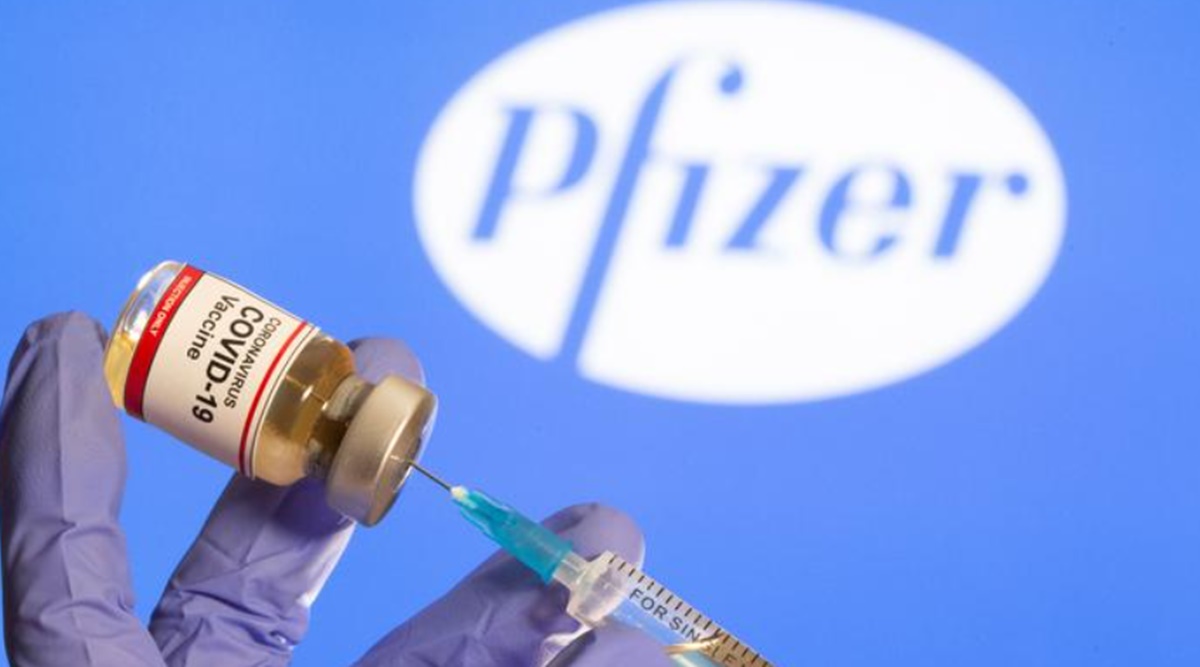 New Zealand's Health Chief Ashley Bloomfield said Medsafe has placed 58 conditions on the approval of the Pfizer-BioNTech vaccine related to additional manufacturing data and ensuring information is provided on any safety concerns elsewhere. (Reuters/File)
New Zealand's Health Chief Ashley Bloomfield said Medsafe has placed 58 conditions on the approval of the Pfizer-BioNTech vaccine related to additional manufacturing data and ensuring information is provided on any safety concerns elsewhere. (Reuters/File) An expert body under India’s apex drug regulator has recommended against granting approval to Pfizer’s Covid vaccine under emergency circumstances, prompting the American drug giant to withdraw its request.
Official records show the Subject Expert Committee (SEC) under the Central Drugs Standard Control Organisation (CDSCO) made the recommendation to the Drug Controller General of India (DCGI) due to concerns over Serious Adverse Events (SAEs).
The committee also noted that additional safety information had not been generated from local trials of the vaccine developed with German biotech firm BioNTech.
The SEC has, meanwhile, recommended that permission be granted to Bharat Biotech to initiate Phase 1 human trials of a single-dose intranasal Covid vaccine developed by Washington University School of Medicine in St Louis and licenced to the Hyderabad firm.
The vaccine, which would be squirted into the nose and inhaled, is aimed at overcoming logistical difficulties with mass vaccination and reducing costs by doing away with the requirement for needles and syringes.
The CDSCO’s expert panel also recommended that permission be granted to Serum Institute of India (SII) to conduct phase 2/3 clinical trials of a Covid vaccine licenced to it by American developer Novavax.
On Pfizer’s vaccine, the minutes of the SEC meeting on February 3 state that after “detailed deliberation, the committee has not recommended for grant of permission for emergency use in the country at this stage”.
The minutes state: “The committee noted that incidents of palsy, anaphylaxis and other SAEs have been reported during post marketing and the causality of the events with the vaccine is being investigated. Further, the firm has not proposed any plan to generate safety and immunogenicity data in Indian population.”
Bell’s palsy is a condition that temporarily weakens or paralyses the facial muscles, while anaphylaxis is a severe allergic reaction that causes symptoms ranging from a rash to low pulses and shock.
On Friday, a Pfizer spokesperson said: “Based on the deliberations at the meeting and our understanding of additional information that the regulator may need, the company has decided to withdraw its application at this time.”
The company said it will “continue to engage” with the authority and resubmit its approval request with additional information “as it becomes available in the near future”.
“Pfizer remains committed to making its vaccine available for use by the Government in India and to pursuing the requisite pathway for emergency use authorisation that enables the availability of this vaccine for any future deployment,” said the spokesperson.
The SEC’s recommendations on SII’s application to test the Novavax vaccine, Covovax, is subject to the condition that the participants involved in the trial be allowed to seek information about whether they were given a placebo around two months after receiving the second dose. Those who have received a placebo may be offered the option of taking the vaccine after that period.
“After detailed deliberation, the committee recommended for grant of permission to conduct Phase II/III clinical trial subject to the condition that the participants randomized to the placebo arm may be unblinded 60 days after the second dose upon request of the clinical trial participant only. Such participant may be offered investigational vaccine as per the dose and schedule prescribed in the protocol,” the minutes state.
India has so far approved two Covid vaccines for use in its mass campaign: Covishield by SII and Covaxin by Bharat Biotech.
Pfizer was the first firm to approach the CDSCO for Emergency Use Authorisation (EUA) in early December after it received the green signal in the UK. While the firm had not conducted local trials or bridging studies of its vaccine in India, provisions under India’s Clinical Trial Rules, 2019, allowed for the firm to seek an approval with waivers on local testing as it had received an approval in a different country whose regulatory authority is recognised by CDSCO.
However, the firm initially was unable to present its case for an EUA in subsequent meetings held by the SEC. Pfizer India had said that its representatives were unable to participate in previous meetings “due to the extremely short notices of a few hours or less and time-zone limitations given that the participating team is primarily based out of the United States”.
According to the US Food and Drug Administration (US FDA) in December, at least four cases of Bell’s palsy were observed in participants who had received the Pfizer-BioNTech vaccine during large scale late-stage trials, while none were observed in those who had received the placebo.
The Medicines and Healthcare products Regulatory Agency (MHRA) of the UK had around that time issued an anaphylaxis warning for the vaccine following two reports of anaphylaxis and one report of a possible allergic reaction following immunisation. However, following a review of further data by the country’s Commission on Human Medicines, the MHRA revised its advice.